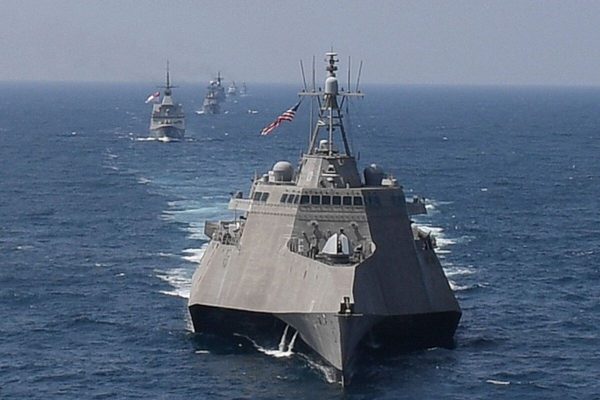Don’t let national security state spin keep you up at night.
You Win or You Die?

After a bad round of war games, America wonders which wars to fight and how to win them.
In the months before the bonfire of takes surrounding the recent crisis with Iran, America’s national security and military establishment wrestled publicly with a different cause for alarm: in wargame after wargame pitched against Moscow and Beijing, the U.S. players wound up, according to one RAND researcher, “getting their asses kicked”—so much so that often games were simply halted midway through.
Now, anti-war sentiment in America and in the West hasn’t run so high—among ruling and ruled alike—in over a century. In fact, as the Iran crisis showed, no major power is currently in favor of a major war. It’s questionable that any would support escalating a new open conflict if it did break out. Nevertheless, one ideally wins one’s wargames, rather than having to unplug the computers because things go so bad.
How should Americans make sense of where we are, where we should be, and who we might want to trust about it?
According to Angelo Codevilla, our failures can be reduced to one simple fact: wars with Russia and China would be waged where all the advantages are theirs. “What forces against what, where, to do what, is the nub of the military matter. The Chinese and Russians, respectively, have good strategic, operational, and tactical answers,” he warns. “The U.S side does not.”
Not only are our would-be foes prepared to win, Codevilla argues, but due to decades of endemic corruption we are not. “U.S. forces, configured as they are because of inter- and intra-Service corporate priorities, because of military-industrial collusion, and above all because of the national security establishment’s self-regarding prejudices and proclivities, are not based, sized, or equipped seriously to contest those advantages.”
Stuck in a self-dealing loop of their own, argues Hunter Hearns, are our security prognosticators themselves. “They know that endless war is good, and don’t spend too much time thinking about why. For Hearns, “most commentary on foreign policy should be treated as what it is: propaganda on behalf of foreign governments and the military-industrial complex. For every region of the world, there is no shortage of lobbyists, consultants, and ‘experts’ who are more than happy to explain to us why they need our money.”
Of course, some of the sting of losing imaginary wars in Asia would be mitigated if, whatever the security class says, we don’t need to fight them in reality.
“The primary security threat to Europe in the future is unlikely to speak Russian,” Gil Barndollar writes. “Terrorism and mass migration from Africa and the Middle East, driven by economic stagnation, corrupt authoritarian regimes, and climate change, will surely matter far more than T-90 tanks or ‘little green men’ in the Crimea.”
As for China, “decades of foolish ‘transformational’ shipbuilding programs, an overworked and undertrained corps of sailors, and the diversion of attention to land war in the Middle East have combined to erode our dominance at sea,” the theater where any military confrontation with China will be played out.
And on the home front, Barndollar concludes that the real threats to America’s regime come from within: “Greed, factionalism, and internal fracture are likely to be greater threats to the republic than any Chinese submarine or Russian missile,” he writes.
Although both major political parties are now dominated by factions that oppose American wars new and old, too much of the rhetoric fueling the new peace movement mobilizes opposition around leftover fears of a diabolical “war party” committed ideologically to unceasing conflict.
Such an attitude, however understandable in the grim wake of the Bush-Obama years, elides two essential features of the contemporary world landscape. First, the U.S. must remain militarily and strategically fit in order to transition to a peacetime world that satisfies our core terms and requirements.
Second, the prevailing constituency for armed conflict as a national default is more managerial than ideological. In some sense even managerialism, of course, is a sort of ideology, but corruption, collusion, and willful blindness to genuine threats are poorly explained by devotion to principle. When it comes to war, the most dangerous game the U.S. is playing has to do less with bad intentions than with failing powers of perception.
The American Mind presents a range of perspectives. Views are writers’ own and do not necessarily represent those of The Claremont Institute.
The American Mind is a publication of the Claremont Institute, a non-profit 501(c)(3) organization, dedicated to restoring the principles of the American Founding to their rightful, preeminent authority in our national life. Interested in supporting our work? Gifts to the Claremont Institute are tax-deductible.
Our elite forces are not so elite.
National security starts at home.



